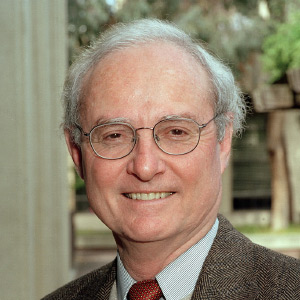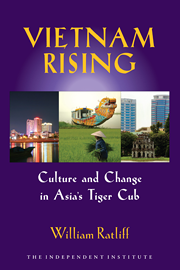STANFORD/HAVANA—Not long ago, for the 16th year in a row, the U.N. General Assembly overwhelmingly condemned the U.S. embargo on Cuba. The vote was more ironic than usual this year, because just before it, President Bush had made an impassioned plea for the rest of the world to join the United States in imposing an embargo on the Castro brothers and the island. Thus, although Bush was right in his talk on some important matters, in the end he threw away an opportunity to move beyond lingering Cold War hostilities.
Cuba’s chronic and crippling economic conditions, as Bush said, are primarily the result of economic and other decisions made over the decades by Cuba’s own leaders. The island does indeed suffer from the absence of many elementary freedoms and an excess of human-rights violations, especially against those who work for a peaceful transition to democracy. Some of Bush’s comments reflected his realization of the need for reconciliation if Cuba is to enter a new era.
Still, in the end, the president insisted that the embargo would continue until there is “fundamental change” in Cuba as measured by “freedom of speech, freedom of association, freedom to form political parties, and the freedom to change the government through periodic, multi-party elections.” Many of us look forward to the day when that phrase will describe Cuba’s situation. But almost certainly that is not on the immediate horizon, and it was no coincidence that right after Bush’s talk, Cuban Foreign Affairs Minister Felipe Perez Roque, known as the mouthpiece of official intransigence, practically declared a state of war against those in Cuba who work for reconciliation, a peaceful transition to democracy, and respect for human rights.
How much more productive it would have been if Bush would have shown any appreciation of the meetings and discussions held on the island just before and after Raul Castro’s speech on July 26. At Raul’s command, questions are being raised about Cuba’s fundamental, systemic problems, and potential solutions proposed often look to opening up the economy. And Cuba’s problems are not being blamed only on “U.S. imperialism” but, as is correct, on failures within Cuba itself. Bush is right that many Cubans, even in the leadership, want major changes, but the choice for the years ahead is not simply between “the old way with new faces,” as Bush said, or immediate democracy, however much many would like the latter. Even though major new policies have not been implemented, expectations have been raised among the people that the leadership had better begin to satisfy through significant reforms.
How much better if Bush had, at the very least, removed restrictions on visits to Cuba, promoted increasing cultural, academic and other exchanges, and lifted limitations on remittances that significantly improve the lives of a major percentage of the population by going “directly into the hands of the Cuban people,” as the president said he wants. It is hard to see current restrictions as anything but efforts to make people’s lives increasingly miserable so that they will try to rise up and forcibly overthrow the existing regime. Some embargo supporters say they are pressing only for peaceful change, but others admit that U.S. policy is more likely to lead to a tumultuous conflict, which, realistically, may be put down with much bloodshed and still not bring change.
The supreme irony is that the United States has conducted eminently flexible and constructive policies in recent decades toward Eastern Europe and Asia, encouraging once totalitarian leaders to turn in the direction of openness and to the kind of economic reforms that are increasingly likely in Cuba. It is ridiculous to pretend that today, Vietnam, China and particularly North Korea have the freedom of press and political organization in support of the “periodic, multi-party elections,” which alone will make Cuba acceptable to Washington and Miami. Why is it good to work step-by-step in those countries but not in Cuba?
It is indisputable that the real cause of Cuba’s national disaster is the blockade imposed on the Cuban people by their own government. But it is also true that U.S. restrictions on ties have greatly facilitated totalitarianism’s efforts to mask the national disaster, and to sell the false notion of Cuba as a fortress under siege and increasingly threatened by foreign attack. This has created a climate conducive to persecuting any person who seeks to peacefully protest and change conditions, the very democratic movement the president purports to support.
Thirty-five years ago, Richard Nixon visited Mao Zedong in Beijing to begin the restoration of U.S. relations with China, during the Cultural Revolution, no less. Now George W. Bush could play that constructive and far-seeing role with respect to Cuba, rather than throwing up barriers that accomplish just the opposite. And if Bush does not do it, America should seek a new president who will.








